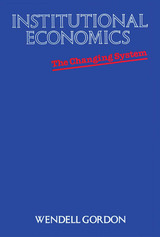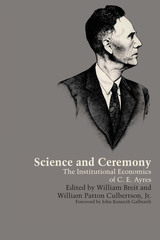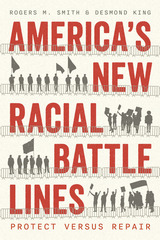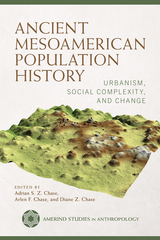
Wendell Gordon presents the philosophy of economic institutionalism clearly and evocatively, in the tradition of the pragmatism of Peirce, James, and Dewey. In Gordon's view, the institutionalism of Veblen and Ayres, the only indigenous American school of economic thought, offered the most hope for understanding and solving the economic problems of the twentieth century.
The institutional approach—long known as the Texas School—looks at social order as ongoing process. The effort to explain how our attitudes have developed and how they are changed is central to this approach. Gordon argues that the dynamics of technical change, the institutionalism of behavior norms, human biology, and the resource endowment of the universe interact to create and change these attitudes.
Gordon thoroughly analyzes both orthodox and Marxist economic approaches with regard to institutional economics. He also examines such other radical approaches as underconsumption and the single tax. There is a discussion of the procedures and problems involved in testing for the validity of institutional theory and the analysis of economic problems in the institutional frame of reference. In addition, inflation, energy, multinationals, property rights, business organization, unemployment, and other issues are considered from an institutional perspective.

Clarence Edwin Ayres was the leading American institutionalist economist in the post–World War II era. His innovative theories concerning the causes and significance of technological change provided the philosophical framework for that school of economics called institutionalism. In his recognition that the critical economic issues of the future would be the realization of the full economic potential of industrial society and the development of the third world, he was at least twenty years ahead of his time. In addition, Ayres's influence as an economics teacher at the University of Texas at Austin went well beyond the discipline of economics to students of anthropology, psychology, philosophy, education, and even music and art.
This book constitutes the first major appraisal of the work and influence of C. E. Ayres. The essays are written from a transatlantic as well as a national viewpoint and do not evince anyone ideological bias. As John Kenneth Galbraith says in his Foreword, the essays are not meant as a monument to Ayres; instead, they critique what he thought and did, showing "his range of interests, his diligence, his originality of mind and method."
Contributions to the volume are "Clarence Edwin Ayres: An Intellectual's Portrait" by editors William Breit and William Patton Culbertson, Jr.; "Clarence Ayres's Place in the History of American Economics: An Interim Assessment" by A. W. Coats; "C. E. Ayres on the Industrial Revolution" by R. M. Hartwell; "Clarence Ayres and the Roots of Economic Progress" by S. Herbert Frankel; "Technology and the Price System" by W. W. Rostow; "Limits to Growth: Biospheric or Institutional?" by Joseph J. Spengler; "Science's Feet of Clay" by Gordon Tullock; "Ayres's Views on Moral Relativism" by Alfred F. Chalk; "Methods and Morals in Economics: The Ayres-Knight Discussion" by James M. Buchanan; " Clarence Ayres's Economics and Sociology" by Talcott Parsons; and "Clarence E. Ayres as a University Teacher" by Marion J. Levy, Jr.
READERS
Browse our collection.
PUBLISHERS
See BiblioVault's publisher services.
STUDENT SERVICES
Files for college accessibility offices.
UChicago Accessibility Resources
home | accessibility | search | about | contact us
BiblioVault ® 2001 - 2024
The University of Chicago Press









